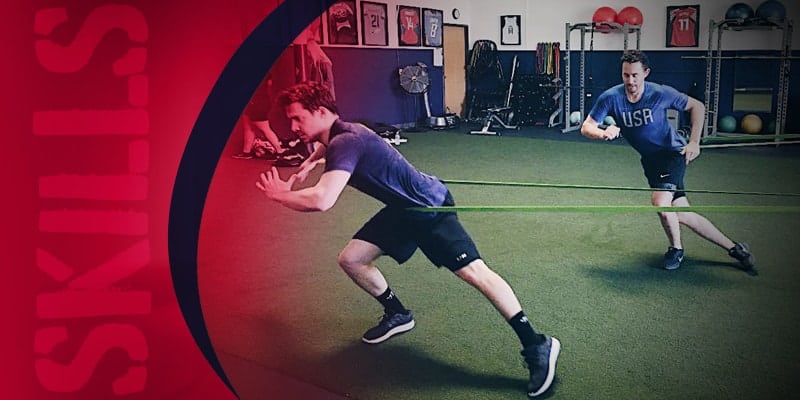The implementation of long–term athletic development (LTAD) aims to improve the health, physical activity, and performance of all youth. USA Hockey refers to long-term athletic development as the ADM (American Development Model), while Hockey Canada uses the mantra Long Term Player Development. It is important to understand that long-term athletic development is not a rigid model but more of a framework. We want to use these general guidelines to assist in performance development while keeping athletes safe, healthy and happy.
An important stage during the LTAD model is the Learn to Train stage. As defined by USA Hockey, this is the period of accelerated learning of coordination and fine motor control and is the critical stage for the acquisition of hockey skills. In late specialization sports such as ice hockey, early specialization can be detrimental to later stages of skill development. Participants should develop a solid base in a variety of sports in multiple environments (ex: swimming, gymnastics & skiing). This is a period where motor coordination may effectively be introduced. Basic movement patterns, using bodyweight only, such as squatting, hinging, pushing, and pulling may all be formally coached. In addition, a dynamic warm-up may serve to improve balance, coordination and movement efficiency.
With this age group (ages 8-11 females and ages 9-12 males) we also need to consider that the athletes will also have growth spurts. Also known as peak height velocity (PVH), this can last 18 to 24 months. During this time period, the athlete may experience aches and pains as the body grows. Also, due to the sudden growth of bones, which affect tendons, ligaments, and muscles, there may be an increased need to introduce flexibility as a means of preparation. Many times, the skeletal system grows at an accelerated rate when compared with soft tissue. This may create chronic overuse injuries. Seek out a qualified athletic trainer or strength coach with a trained eye. This ensures proper progression, injury care and enhances safety. Develop as an athlete first.
Mike Hannegan is an Athletic Trainer and Strength and Conditioning Specialist with over 10 years of experience in the NHL with the Anaheim Ducks and St. Louis Blues. Mike is an owner and operator of Compete Sports Performance and Rehab in Yorba Linda, CA. He can be reached at mike@competeperformance.com or vis the website at www.competeperformance.com

